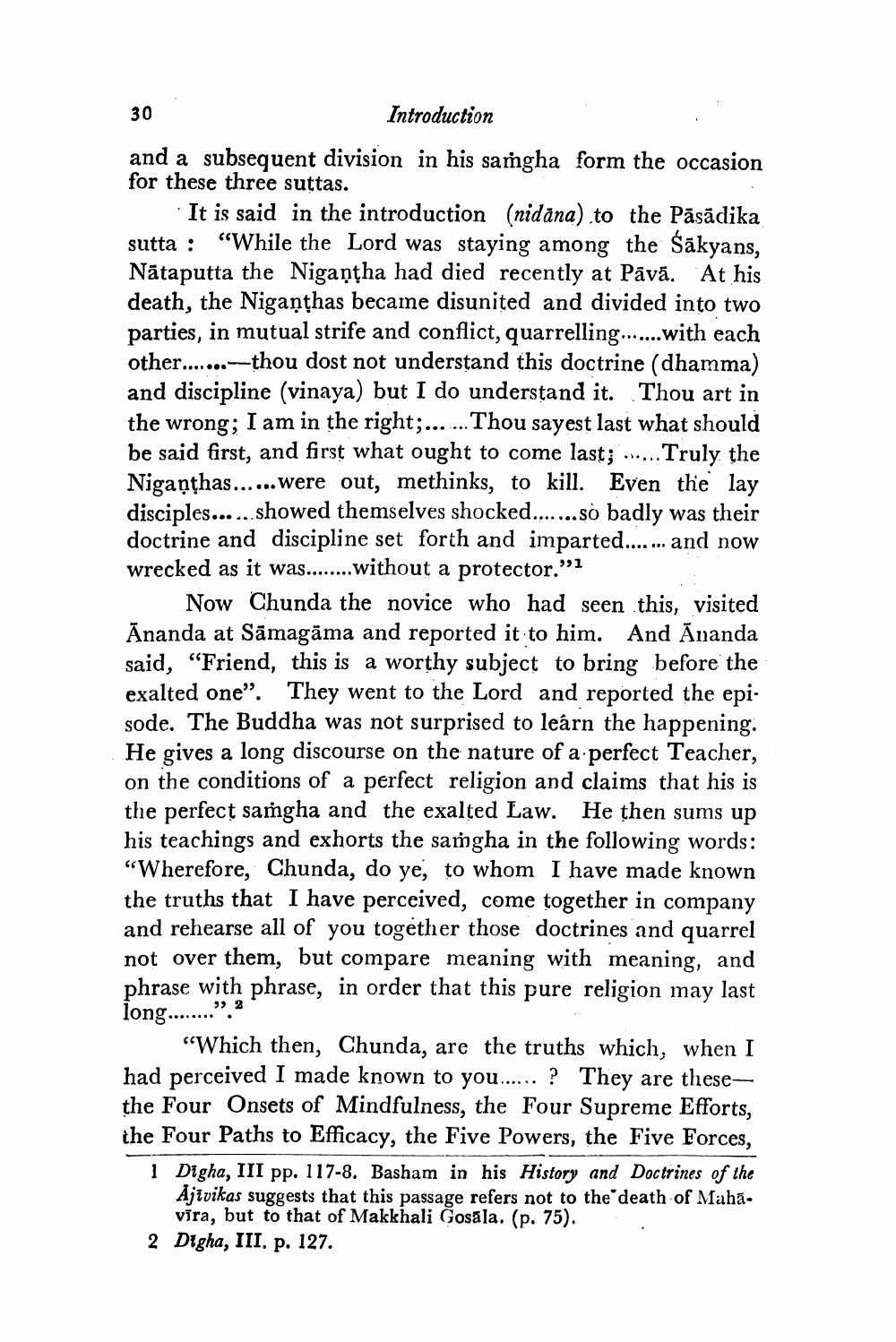________________ 30 Introduction and a subsequent division in his samgha form the occasion for these three suttas. It is said in the introduction (nidana).to the Pasadika sutta : "While the Lord was staying among the Sakyans, Nataputta the Nigantha had died recently at Pava. At his death, the Niganthas became disunited and divided into two parties, in mutual strife and conflict, quarrelling ......with each other.......--thou dost not understand this doctrine (dhamma) and discipline (vinaya) but I do understand it. Thou art in the wrong; I am in the right;...... Thou sayest last what should be said first, and first what ought to come last; ...... Truly the Nigaathas...... were out, methinks, to kill. Even the lay disciples......showed themselves shocked.......so badly was their doctrine and discipline set forth and imparted....... and now wrecked as it was.......without a protector.") Now Chunda the novice who had seen this, visited Ananda at Samagama and reported it to him. And Ananda said, "Friend, this is a worthy subject to bring before the exalted one". They went to the Lord and reported the episode. The Buddha was not surprised to learn the happening. He gives a long discourse on the nature of a perfect Teacher, on the conditions of a perfect religion and claims that his is the perfect samgha and the exalted Law. He then sums up his teachings and exhorts the samgha in the following words: "Wherefore, Chunda, do ye, to whom I have made known the truths that I have perceived, come together in company and rehearse all of you together those doctrines and quarrel not over them, but compare meaning with meaning, and phrase with phrase, in order that this pure religion may last long........". 2 "Which then, Chunda, are the truths which, when I had perceived I made known to you..... ? They are these the Four Onsets of Mindfulness, the Four Supreme Efforts, the Four Paths to Efficacy, the Five Powers, the Five Forces, 1 Digha, III pp. 117-8. Basham in his History and Doctrines of the Ajivikas suggests that this passage refers not to the death of Maha. vira, but to that of Makkhali Gosala. (p. 75). 2 Digha, III. p. 127.




